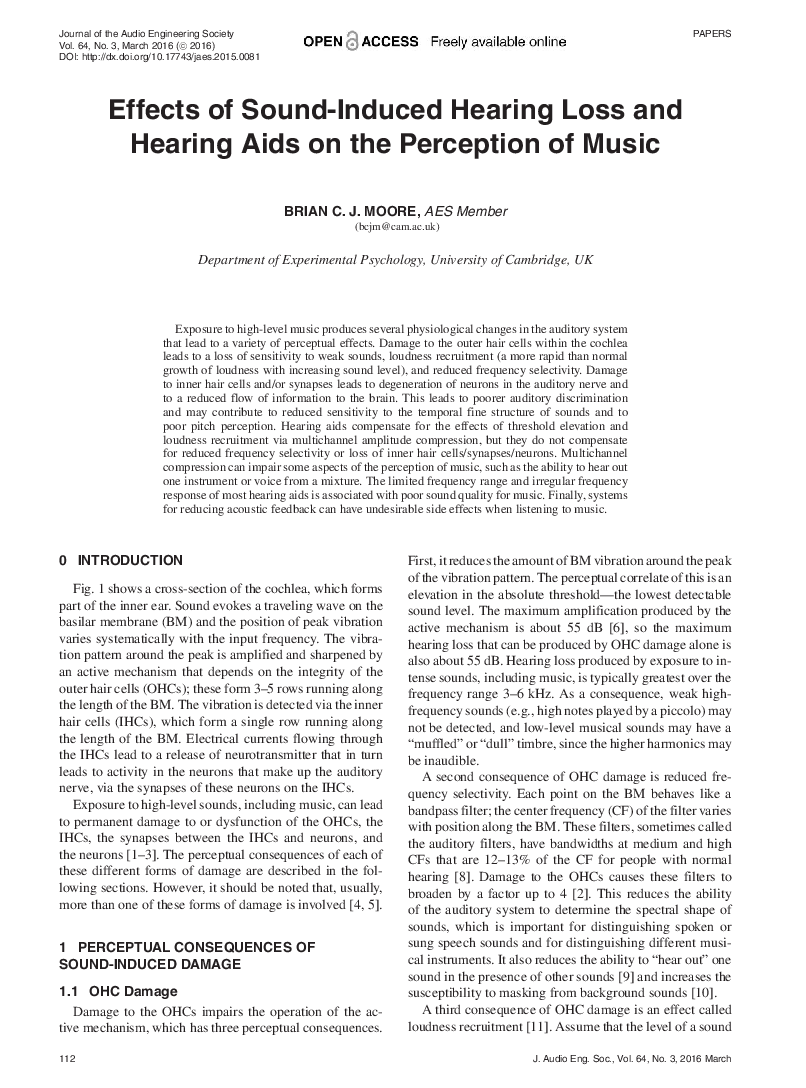Home / Publications / E-library page
You are currently logged in as an
Institutional Subscriber.
If you would like to logout,
please click on the button below.
Home / Publications / E-library page
Only AES members and Institutional Journal Subscribers can download
Frequent exposure to high-level music can produce physiological changes in the auditory system. Damage to the outer hair cells within the cochlea can lead to a loss of sensitivity to weak sounds, loudness recruitment (rapid growth in loudness with increasing level), and reduced frequency selectivity. Damage to the inner hair cells and/or synapses leads to degeneration of neurons in the auditory nerve. This leads to poorer auditory discrimination, reduced sensitivity to the temporal fine structure of sounds, and to poor pitch perception. Hearing aids compensate for the effects of threshold elevation and loudness recruitment via multichannel amplitude compression, but they do not compensate for reduced frequency selectivity or loss of inner hair cells, synapses, and neurons. Hearing aids can reduce sound quality because of several factors, including limited frequency range, irregular frequency response, artifacts produced by feedback-cancellation systems, frequency shifting if activated, processing time delays, and distortion for high sound levels.
Author (s): Moore, Brian C.J.
Affiliation:
Department of Experimental Psychology, University of Cambridge, UK
(See document for exact affiliation information.)
Publication Date:
2016-03-06
Import into BibTeX
Permalink: https://aes2.org/publications/elibrary-page/?id=18122
(1010KB)
Click to purchase paper as a non-member or login as an AES member. If your company or school subscribes to the E-Library then switch to the institutional version. If you are not an AES member Join the AES. If you need to check your member status, login to the Member Portal.

Moore, Brian C.J.; 2016; Effects of Sound-Induced Hearing Loss and Hearing Aids on the Perception of Music [PDF]; Department of Experimental Psychology, University of Cambridge, UK; Paper ; Available from: https://aes2.org/publications/elibrary-page/?id=18122
Moore, Brian C.J.; Effects of Sound-Induced Hearing Loss and Hearing Aids on the Perception of Music [PDF]; Department of Experimental Psychology, University of Cambridge, UK; Paper ; 2016 Available: https://aes2.org/publications/elibrary-page/?id=18122